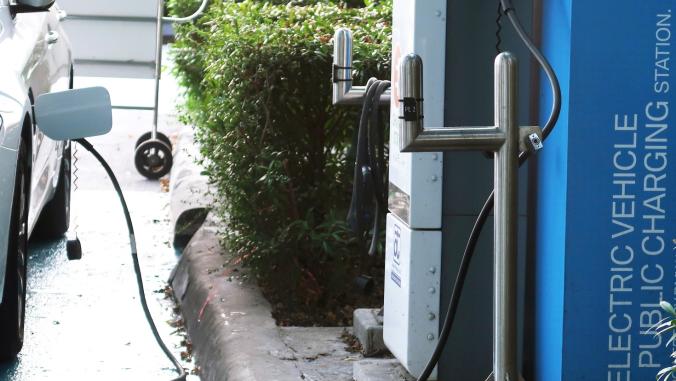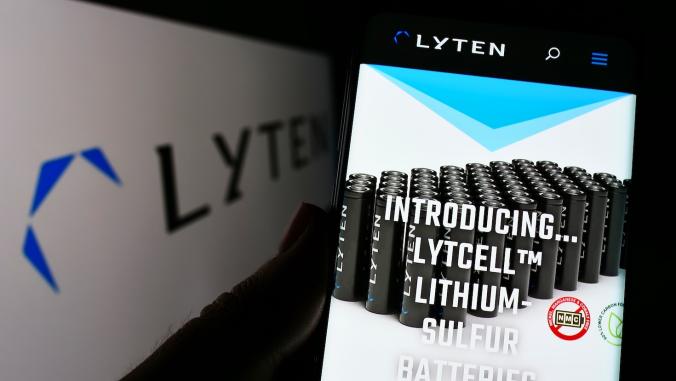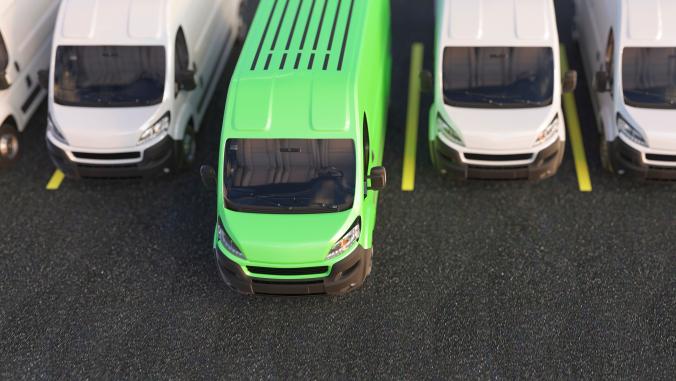One of the biggest barriers to getting more heavy-duty electric trucks on the roads today is, quite simply, there just aren't enough of 'em.
Fleet leaders that want to buy Class 8 electric trucks (those are the really big ones) commonly face long delivery timelines from automakers. When they do get a vehicle, it’s usually a pre-production model.
Last week, I got a chance to check out a phenomenon that is still pretty rare but will grow significantly over the next few years: an electric Class 8 truck operating in the wild. I stopped by the trucking facility of XPO Logistics in Hayward, California. Jaime Magtalas, a driver sales representative for XPO Logistics, was kind enough to give me a test ride.
I think it was my first on-site visit since the pandemic shut the world down, and I remained masked with the windows down the entire time.
In terms of the individual driving experience, battery-powered big rigs operate a lot like diesel-powered ones. However, the battery power eliminates the regular noise that normally would come from a diesel engine. If anecdotal evidence is any indicator, drivers seem to be pretty keen on operating them. Magtalas described driving the truck as "quiet" and "smooth."
As we drove around the lot, the electric semi-truck was essentially silent. What we couldn't see with our eyes was the much cleaner air and reduced carbon emissions that result from swapping out a diesel engine with a bunch of batteries.
The drivers at XPO Logistics will operate the truck over the next nine months around the greater San Francisco Bay Area and give Daimler feedback on how it went. The truck will do what the industry calls "Less Than Load," or LTL, routes — where the shippers are booking per load and the shipments are generally lighter. After driving during the day, the truck returns to the Hayward depot to be charged overnight. Earlier that week, the truck picked up loads in Half Moon Bay and San Francisco.
Charging the truck, of course, is a lot different from filling it up with diesel. Right now, XPO Logistics has a charger from ChargePoint. As the company only has one electric truck, it isn't too knee-deep into what would be needed to smart-charge a much larger electric truck fleet.

While electric big rigs are still unusual, logistics companies — especially those in California — are increasingly looking at ways to pilot and buy these emerging trucks. California in June approved the Advanced Clean Truck rule, which requires both automakers and truck buyers to adopt zero-emission trucks as part of their lineups in coming years. New Jersey and other East Coast states have pledged to implement similar legislation.
Drivers are expecting to see more electric trucks on their lots, and many seem eager to embrace them. "Electric is cool," said David Pepe, service center manager for the less-than-truckload program at XPO Logistics. "We want it to work for the future."
The Freightliner eCascadia series that XPO is testing won't go into commercial production until late 2022. The production versions have an advertised range of 250 miles, with a battery pack of 475 kilowatt-hours (for comparison, a Tesla Model 3 has an 82-kWh battery pack). Daimler says the truck will be able to be charged to 80 percent capacity in 90 minutes.
Right now, fleets such as XPO Logistics are using pre-production models, so manager can expect the battery range to be lower than the official production one. XPO Logistics just got its truck a couple weeks ago, and will test out what kind of range its drivers experience.





